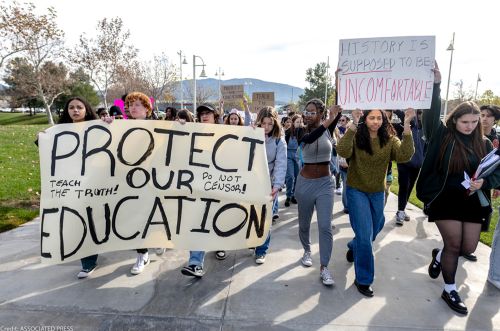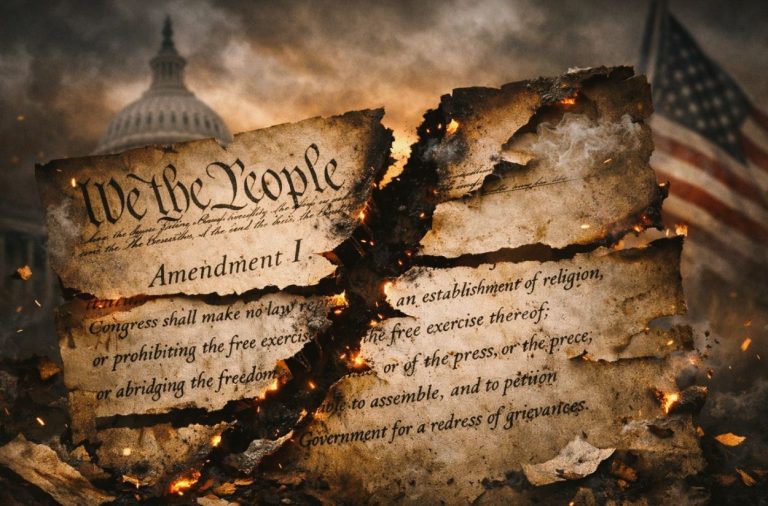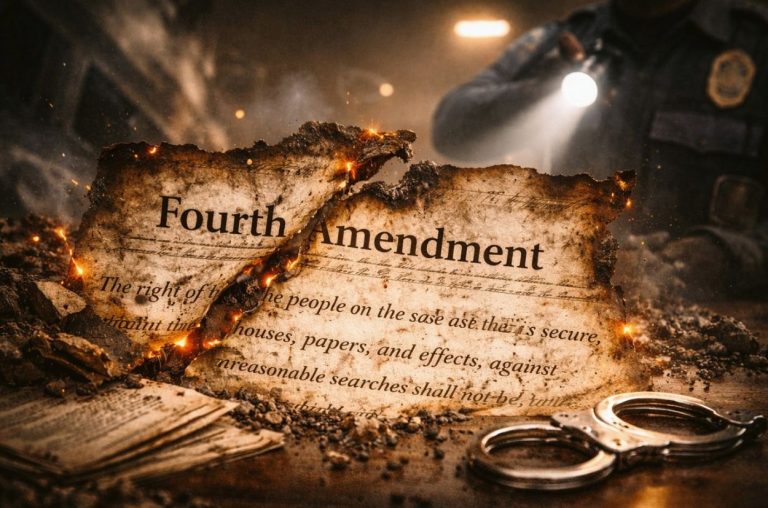

The lesson is not only that democracy can die in darkness, but that it can also wither in daylight: through forms, contracts, and checklists.

By Matthew A. McIntosh
Public Historian
Brewminate
Introduction: A Subtle Tyranny in the Making
The new American authoritarianism does not always arrive with jackboots or iron fists. It often walks in through human resources departments, accreditation boards, and performance review panels. Policies now shaping Washington involve loyalty screenings for civil servants, not as symbolic oaths but as bureaucratic filters for ideological compliance. The initiative echoes a chilling lineage: from McCarthy-era purges of intellectuals to European authoritarian regimes that turned civil service into a policing mechanism of political orthodoxy.
Such moves may appear mundane. Paperwork, screenings, vetting, these can be dismissed as administrative necessities. Yet beneath the surface lies a re-engineering of institutional culture, where quiet intimidation displaces open debate, and the distinction between state and party begins to dissolve.
Loyalty as Governance
The Trump administration’s second tenure has introduced proposals requiring new civil servants to undergo loyalty screenings, ensuring political allegiance aligns with executive preferences. This shift positions partisan loyalty as a condition of employment, altering the very definition of public service.
Historically, America built its professional bureaucracy through reforms that insulated it from the spoils system. The Pendleton Act of 1883 was designed to prevent precisely this form of politicization. The current reversal not only undermines that legacy but risks hollowing the expertise that government depends on: scientists, regulators, and analysts who are asked to serve facts rather than factions.
The loyalty apparatus extends beyond government payrolls. Universities, long accused by conservatives of harboring liberal bias, are increasingly entangled in surveillance rhetoric. Faculty are warned, often indirectly, that tenure and grants may depend on avoiding politically sensitive critiques.
Academia Under Suspicion
The university, once the symbolic sanctuary of free inquiry, has become a contested battlefield. Loyalty initiatives bleed into accreditation processes, hiring practices, and research funding. A scholar writing critically about government policies may now find that their research proposals are “misaligned with national priorities,” a euphemism that masks political punishment.
This echoes authoritarian precedents abroad. In Hungary, Viktor Orbán systematically brought universities under political oversight, shuttering programs in gender studies and installing loyalists on governing boards. The American trajectory does not yet replicate Hungary’s full-scale takeover, but the atmosphere of self-censorship is unmistakable. Professors hesitate, departments deflect, and students witness a narrowing of what can be spoken in classrooms once considered bastions of dissent.
Administrative Pressure as Soft Repression
Repression in its modern form often looks like paperwork rather than prison cells. By making employment contingent on loyalty, governments weaponize careers, pensions, and reputations. A prosecutor unwilling to pursue politically motivated cases may be quietly transferred. A regulator reluctant to dismantle environmental protections may find their division reorganized.
The Department of Justice is a case in point. Reports suggest attempts to pressure the agency into partisan compliance, shifting it from a defender of law into an instrument of political will. These administrative maneuvers are quieter than street-level violence, but they corrode democracy from the inside.
The Long Shadow of Authoritarian Tactics
The danger of such tactics lies in their normalization. Citizens adjust, telling themselves that screenings are harmless, or that loyalty is a natural demand of patriotism. Yet history offers stark warnings. In authoritarian Italy and Germany, loyalty pledges began as symbolic gestures but metastasized into mechanisms that excluded, punished, and eventually criminalized dissent.
Civil servants are not soldiers. Their allegiance must be to the law and the Constitution, not to an individual or party. When this principle erodes, civil society itself becomes fragile. Universities turn into echo chambers, regulatory bodies into partisan weapons, and law enforcement into enforcers of ideology.
Why This Matters Now
The United States stands at a moment when administrative choices can reshape the DNA of its institutions. The purging of civil servants through loyalty tests and the silencing of academics through political pressure are not minor procedural adjustments. They are the scaffolding of authoritarian governance.
What emerges is not a sudden dictatorship but a creeping conformity, one that settles into the daily routine of civil service and the hushed caution of lecture halls. The silencing of dissent does not always require visible repression. Sometimes it requires only paperwork, compliance checklists, and the steady erosion of courage.
The Global Context of Democratic Backsliding
These pressures inside American institutions are not isolated. They echo patterns unfolding across the globe. From Brazil to Turkey, from Hungary to India, governments have discovered that the subtler arts of bureaucratic control often achieve more lasting compliance than overt crackdowns. Citizens find themselves living under regimes that still hold elections and preserve constitutions, but whose institutions have been hollowed out by loyalty vetting and partisan appointments.
The erosion of independent universities, media, and civil services creates a feedback loop of distrust. Citizens see less accountability, they lose confidence in governing systems, and populist leaders then present themselves as the only figures who can be trusted. In the United States, that mistrust is already measurable. A 2024 Gallup survey found public confidence in Congress hovering at 8 percent, with universities at just 36 percent and the Supreme Court at 27 percent. The decline in trust is not simply a reaction to partisanship but a sign of structural erosion: when institutions are perceived as politically captured, their authority collapses in the public imagination. America’s recent turn toward loyalty-based governance taps into these broader anxieties. The lesson is not only that democracy can die in darkness, but that it can also wither in daylight: through forms, contracts, and checklists that appear ordinary until their cumulative effect is recognized too late.
Originally published by Brewminate, 08.28.2025, under the terms of a Creative Commons Attribution-NonCommercial-NoDerivatives 4.0 International license.


